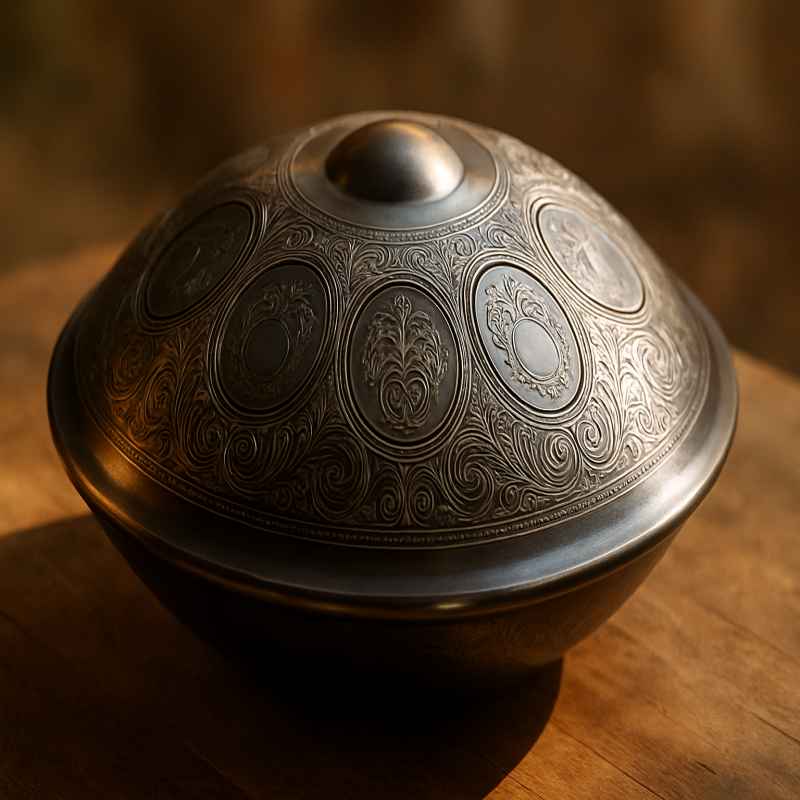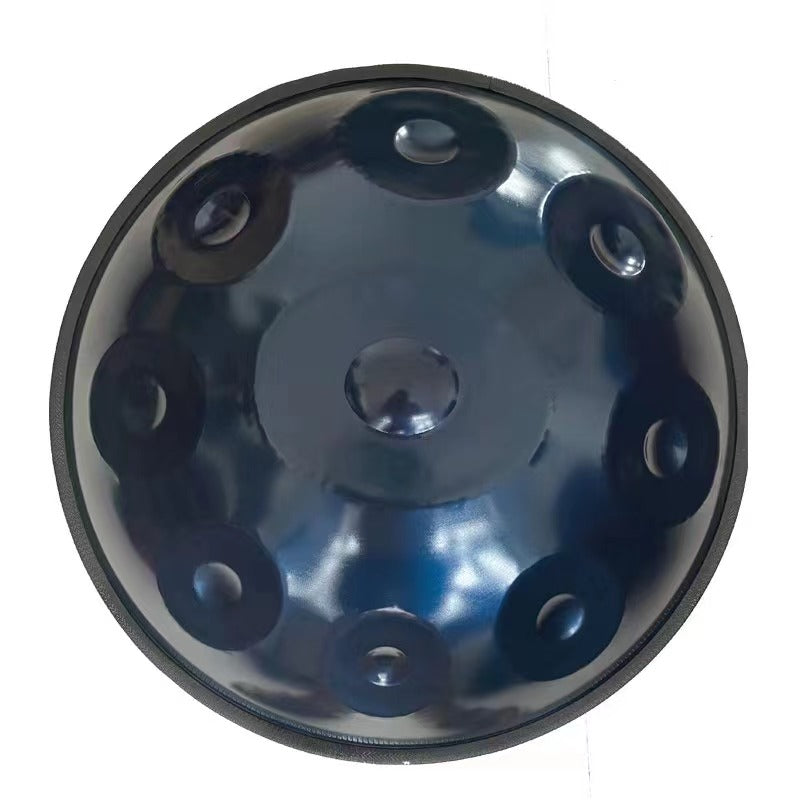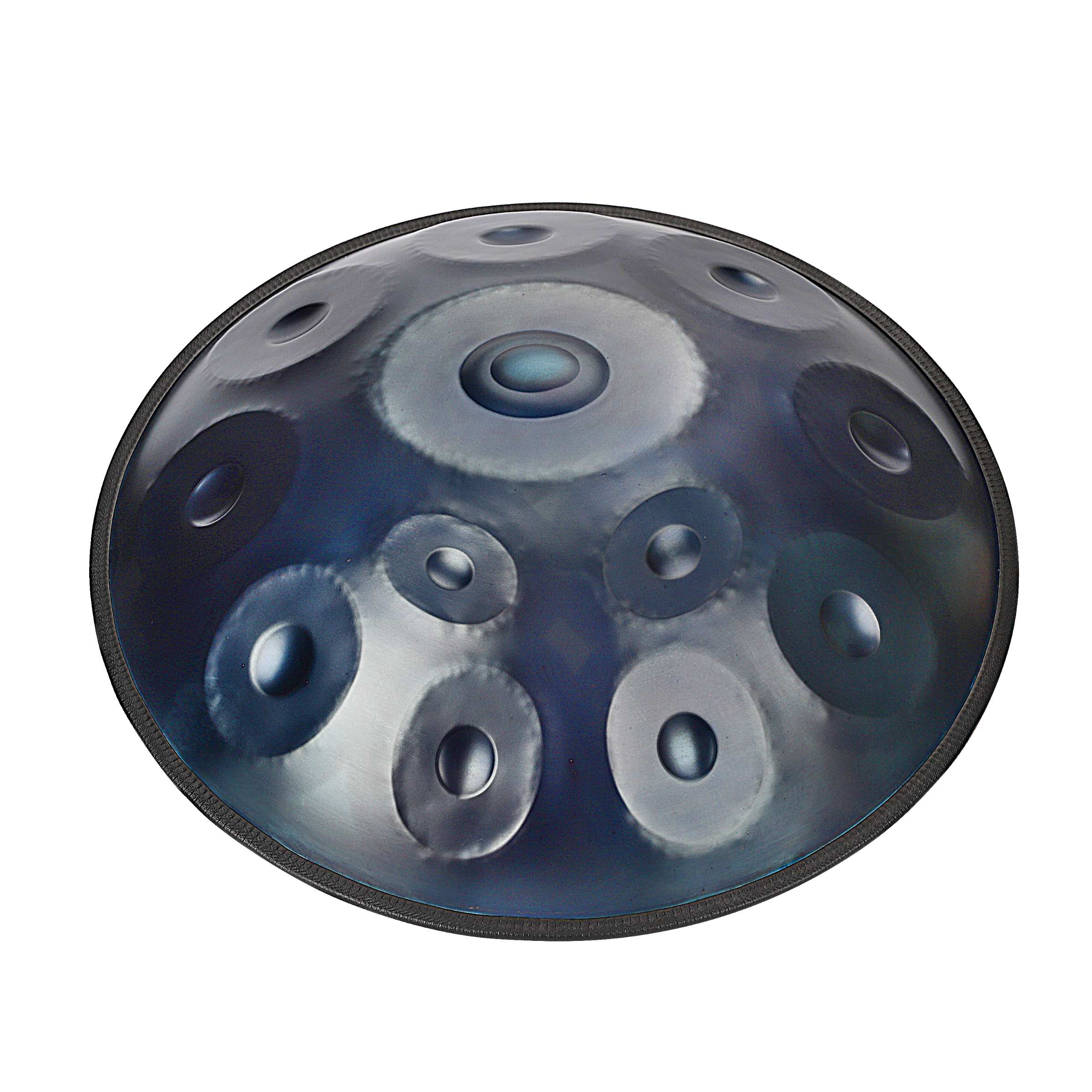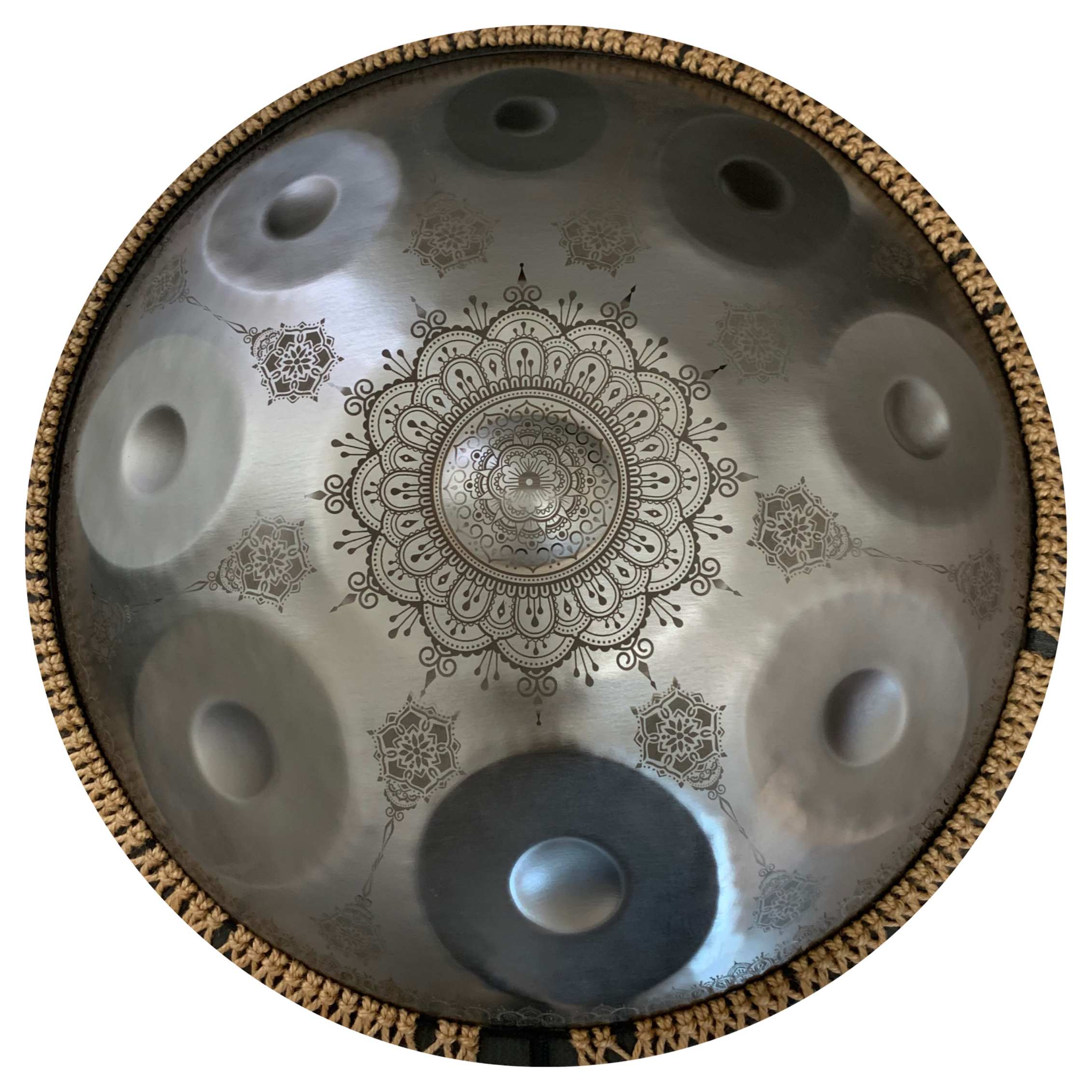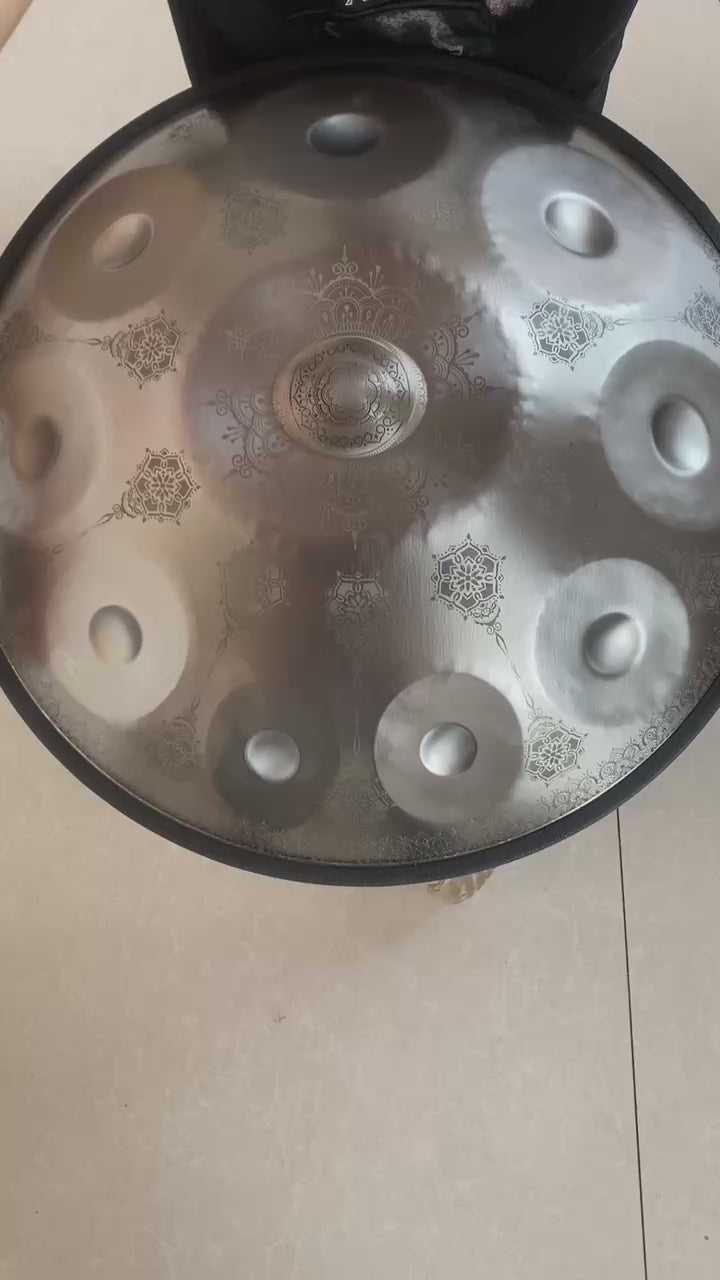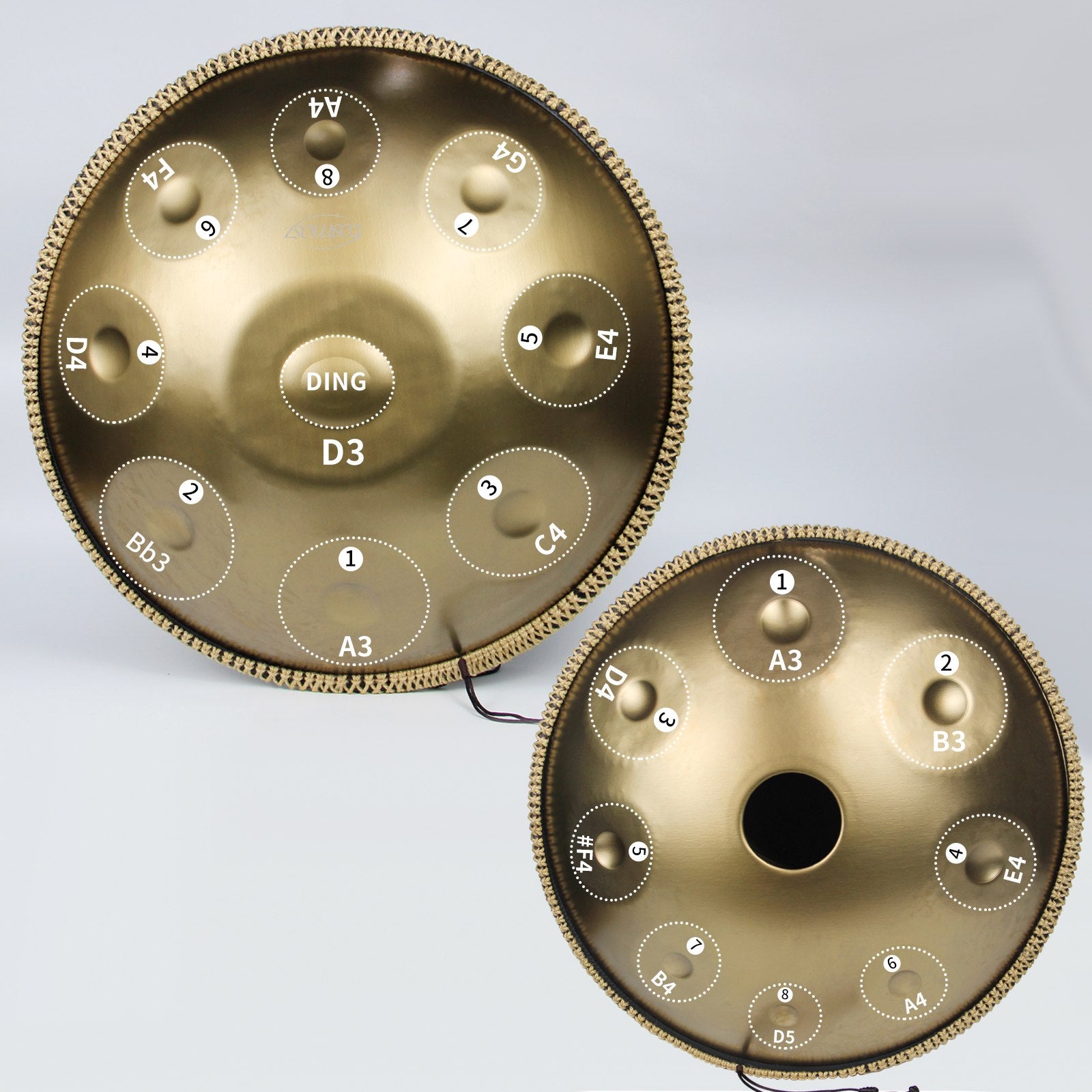
Your handpan is a unique instrument that produces captivating music. Maintaining your handpan is crucial, just like with any other priceless item. Frequent upkeep and cleaning prolong its life and maintain its lively sound. Environmental conditions, such as humidity and salty air, can damage the instrument, leading to rust and a reduction in tonal quality.
These problems can be avoided, and your handpan can continue to sing with a regular care routine. For the hand pan to continue to resonate wonderfully for many years to come, proper cleaning and care are essential. This guide provides the tips and information you need to keep your handpan in top condition, preserving both its longevity and sound quality.
Essential Tips for Maintaining Your Handpan
Clean your Handpan Regularly
Maintaining the condition and sound quality of your handpan requires regular cleaning. If the metal is not cleaned regularly, it might oxidise and rust, which can lower the instrument's sound quality. Therefore, it is advised to wipe your handpan drum with a gentle, dry cloth and use a moist cloth to remove tough stains and grime after every playing session. Avoid using abrasive pads and chemical products as they may harm the instrument's surface.
Transport Your Handpan Carefully
If you frequently travel to concerts, festivals, or other events, be sure to pack your instrument in a suitable carrying bag. A protective case will shield the instrument from shocks during transportation. Additionally, be careful not to overload the case, since this could damage the instrument by applying excessive pressure. Naturally, it is best to select a carrying case that fits your handpan's dimensions and provides adequate protection. Because they provide additional protection against scratches and knocks, a carrying case made of foam or neoprene may be a wise choice.
Avoid Humid Places
Keep your handpan instrument in a dry and comfortable place. Due to its metal construction, the handpan is susceptible to changes in humidity and temperature. As a result, it is crucial to keep it in a place with comparatively steady climate fluctuations. Over time, humidity can change the instrument's notes and harm its surface. It is also crucial to avoid leaving your hand pan drum in an extremely hot environment, such as the sun-exposed interior of a car. Lastly, it is recommended not to leave your handpan outside in the rain as the water may harm the instrument's surface.
Avoid Contact With Blunt Objects
Playing the handpan while wearing rings is a bad idea. This also holds for any metal belts or jewellery that might come into direct contact with your handpan. Your handpan's tuning may suffer significantly if you hit a note with any hard object. Playing with your bare hands without being careful might also result in a scratch very quickly. Just ensure to have the proper reflex, take off your jewellery before playing, and let the person you are lending your handpan to know. Naturally, watch out that no one strikes the instrument with a wooden stick or anything else that might mark or throw off the handpan's tuning.
Keep a Regular Check on the General Condition of Your Handpan
Have a professional inspect your handpan regularly. It is crucial to get your handpan inspected by a specialist regularly to ensure that it is still in good shape, even if you take good care of it. A skilled technician will be able to identify any possible problems and address them before they worsen. You'll be able to enjoy your instrument for many years to come thanks to this. Sometimes, all it takes to get your handpan's notes to sound good again is a few small tweaks. To learn the notes and emission frequencies of your instrument, you can also use software or music applications. Over time, this will help you determine whether your instrument is out of tune.
How to Clean Your Handpan
Wipe After Playing
A handpan player who is concerned about the longevity of his instrument will make sure to clean it right away after use, preferably with a microfiber cloth (especially for nitrated mild steel models). To extend the life of your handpan, you can also use a fresh cotton cloth, but the most crucial thing is to establish and maintain the habit.
Clean With Alcohol
Consider occasionally using an alcohol-soaked cloth to wipe off your handpan's entire surface. Spend some time rubbing the two shells' exteriors, the edges, and, if you'd like, the inside of your instrument. Use surgical spirit or rubbing alcohol if possible, as these will be kinder to your instrument.
Protect With Oil
After cleaning, oil or wax is essential for handpan protection. Certain instruments cannot be oiled, so consult the manufacturer's instructions for maintenance guidelines. For handpan maintenance, utilise natural oils instead of chemical items. Metal Sounds offers organic beeswax and sprays for cleaning and maintenance. Depending on the temperature, protection should be applied at least twice a month in humid areas and less frequently in dry ones. Oil can be added to stainless steel handpans more frequently.
Remove Rust Spots
To get rid of rust spots, you can clean your handpan with alcohol and then gently rubb with a damp sponge. Use wet polishing cloth if the corrosion has been there for a longer time. Avoid rust dust and use alcohol to clean the handpan of any last bits of rust. Use a fresh cloth and oil to protect the handpan. You can keep your handpan looking brand new and avoid rust stains by maintaining it regularly and storing it properly.
Conclusion
The goal of handpan drum care is to preserve the deep, resonant sound that makes this instrument so unique, not only to keep it looking gorgeous. You can make sure your handpan stays in great shape for many years to come with all the above mentioned tips. If you maintain your handpan with care and respect, it will continue to produce its enchanted tones whether you are playing in a quiet studio or outside. Consider upkeep as a ritual that improves your musical journey and strengthens your bond with the instrument.

